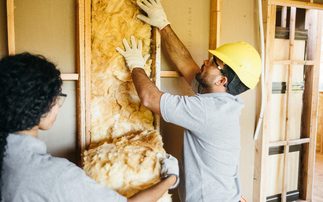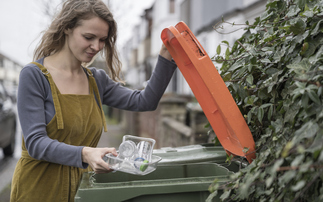The debate will continue over renewable heat and power - over the technologies themselves and the levels of subsidy provided by Feed-in Tariffs and the newly-announced Renewable Heat Incentive - but the simple fact is we need to get our houses in order - literally in some cases - if we're to make a real difference to bills and carbon emissions.
To ensure success it's imperative that customers receive simple, consistent advice from Government and energy companies alike. As with most things in life, there's no 'one-size-fits-all' solution to providing a secure and lower carbon energy source, and customers will demand clear guidance, not just on what works best but on what works best for them.
For business customers the increased support for ground source heat pumps, biomass and biomethane gas injection projects in particular provide a cost-effective means of delivering substantial carbon savings and help to develop a commercially viable market for the future.
From E.ON's perspective, the RHI will start to open up new community energy opportunities and helps us to invest in the new-build heat networks that will create 'future-proofed' low carbon and cost-effective infrastructure.
E.ON has already committed to a number of projects that are helping this to happen. At Dalston Square in Hackney for example, a 553-home development undertaken in partnership with Barratt Homes receives gas from an onsite energy centre, which is powered by combined heat and power (CHP) and biomass boilers. In addition to reducing carbon emissions by as much as 25 per cent less than the average, the energy centre also cuts heating and hot water bills by 23 per cent.
RHI will also provide a stable platform for retrofit projects at scale within the social housing and residential sector, but this can only work if the subsidy is a sustainable one that can be used as a basis for long-term planning.
It is imperative that we start weaning ourselves off an over-reliance on gas boilers and on to more renewable systems such as solar energy or heat pumps. This is even more important for off-grid homes, which will need to move away from oil or coal-based heating systems.
As one of the country's biggest installers of ground-source heat pumps and a partner with a number of city councils and leading house builders on community-sized energy schemes, E.ON is already delivering more renewable ways to heat our homes. We've already installed more than 2,000 heat pumps across the country, as well as offering solar heating and hot water systems, microCHP systems, plus we're also conducting UK-first trials of solid oxide fuel cell technologies.
Our Sustainable Energy business is already providing renewable energy to entire communities, working with house builders to develop more than 10,000 homes with access to low carbon energy sources through district heating schemes, and partnering with local authorities to help with knowledge and experience.
In Cranbrook near Exeter, for example, we're developing an energy centre to supply heat and hot water to 3,500 new-build homes as well as community facilities and an industrial park.
For success it is clear that those looking to make substantial investments need stability and confidence about what they're buying and what the benefits are.
For all its faults - and as ever, the devil is in the detail - the RHI is a vital step towards helping British homes and businesses take greater control of their energy. With clear guidance for customers, it has the potential to do for heating what the Feed-in Tariff has done for renewable electricity.
Michael Woodhead is managing director of E.ON's sustainable energy business






